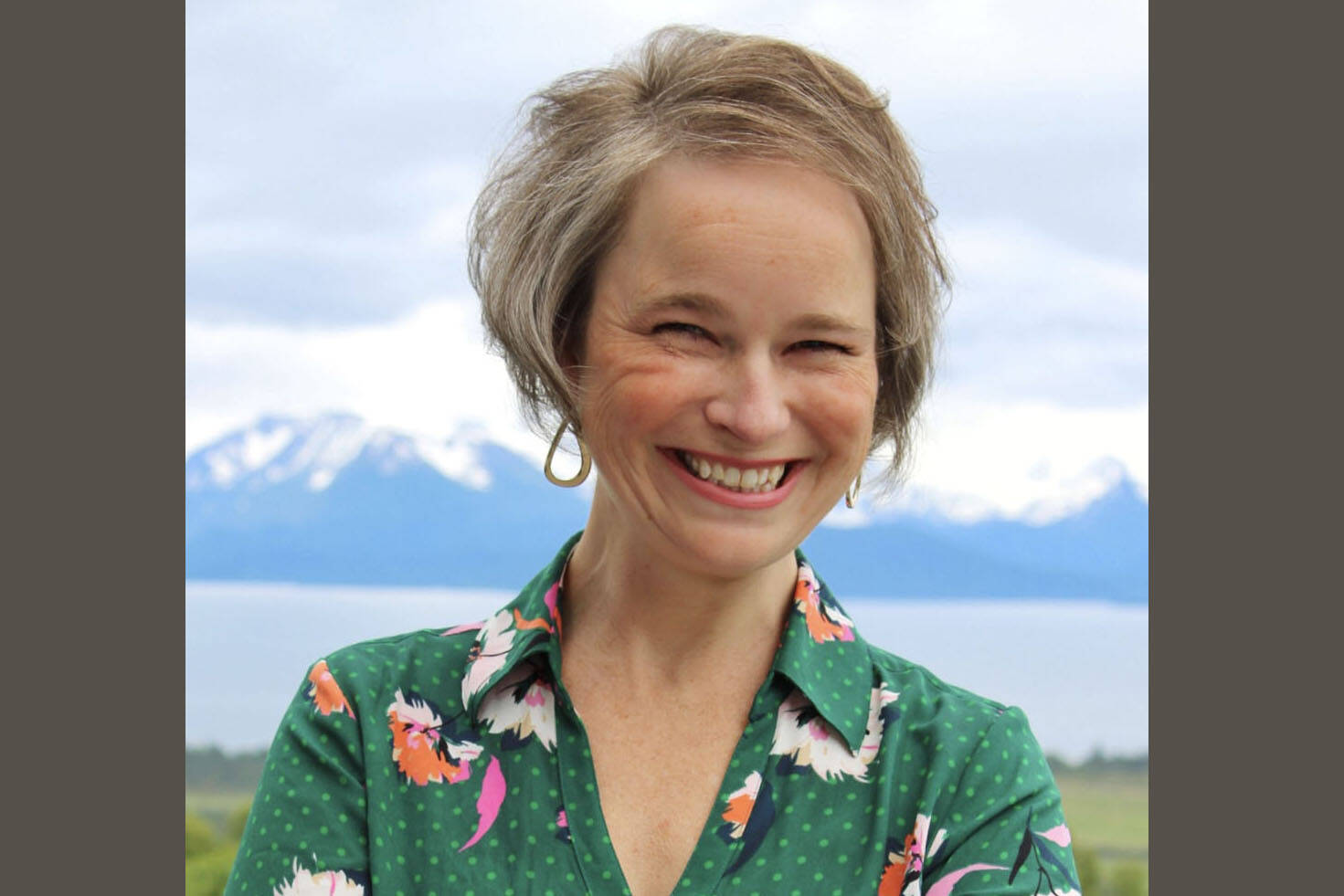Rep. Sarah Vance on Jan. 4 hosted a public discussion and question and answer session ahead of the Jan. 16 start of the 2024 legislative session in Juneau.
Vance, to a group of about 15 people at Captain’s Coffee Roasting Company, covered topics including energy prices, education funding, human trafficking and her legislative efforts.
Energy
On the issue of energy, she said addressing rising energy costs and a projected shortage of Cook Inlet natural gas will be a top priority in the upcoming session.
The Alaska Department of Natural Resources last year reported demand for Cook Inlet gas could outpace supply as early as 2027 without additional development in the basin’s active fields.
“We are going to look at both long-term goals and decisions that we need to make that are going to impact us right now. This is going to be a very unifying thing because it will impact everyone and we’re looking at every option, but natural gas is the cleanest and most affordable solution,” Vance said.
Vance said within the next couple of weeks the state will hear policy suggestions that can be used to resolve some of the energy complications the state is currently facing. She did not provide details on where the suggestions will come from or any more specific details on energy complications.
“This is an ongoing issue and it’s going to take more than just the next session to resolve. This is something that people are taking quite seriously and rates are going to continue to climb unless the state responds.”
She concluded the introduction by saying that high costs in rural energy impact high costs in education.
Education funding
The Kenai Peninsula Borough School District is facing a $13 million budget shortfall in the upcoming fiscal year. Last week, the borough assembly unanimously passed a resolution calling on lawmakers to increase and inflation proof the BSA, which, except for a $30 increase approved with the Alaska Reads Act, hasn’t changed since 2017.
Vance said she supports looking at a variety of options to address education costs besides just considering an increase in the base student allocation (BSA), or how much the state provides in K-12 funding per student.
She also is supportive of expanding charter schools and home-schooling options.
“Our charter schools in the state are doing great, so there are proposals on the table to have more charter schools and home-schooling available,” she said. “There are such a wide variety of options that we want to bring all of these options to the forefront and show that there is more available than just raising the BSA.”
Vance said she supports a bonus paid directly to teachers as well as school health care consolidation House Bill 21, which she cosponsored with Kevin McCabe (R) and Thomas McKay (R) in January 2023, would give schools and municipalities the option to join the AlaskaCare health care program. In the online Alaska House Journal pages, the Bill reads “An Act relating to group insurance coverage and self-insurance coverage for school district employees, employees of the University of Alaska, and employees of other governmental units in the state; and providing for an effective date.”
Human trafficking
Vance spent a long period of time addressing her concern about and stance on youth human trafficking in Alaska. As part of Alaska Human Trafficking Prevention Month, Vance said she has invited advocates who have lived with human trafficking to come to the Capitol in Juneau on Jan. 24 to discuss the issue.
“Most people do not know how big of an issue this is and how it is impacting Alaska and I want to change that,” she said. “The issue exists in every town and I have heard that it exists in every high school in Anchorage.”
According to a brochure provided at the discussion, Vance’s House Bill 68, would “increase penalties for all forms of trafficking, provide legal protection for trafficking victims, establish revoke business, teacher and professional licenses from felony sex trafficking convictions and expand age appropriate education curriculum to include trafficking and safe online practices.”
Vance also discussed several other bills she identified as “human dignity bills,” these were described briefly on a flyer provided at the event and include topics related to “an extended senior benefits program, council on human and sex trafficking, screening for trafficking, child sexual abuse material and age verification for porn sites.”
“If you want the definition of what evil is, it is asking a child to trade something so sacred for the basic necessities of life. So it is my mission to bring the issue of human trafficking and address things that are happening to our kids.”
Q&A
Following an emotional and lengthy presentation of trafficking, Vance took questions and comments from attendees. One person expressed concern for youth about the role and access to pornography on computers and phones.
Vance said that features like this, the social components of iphone and computer use, might affect other social issues, such as bullying.
Vance then turned the topic back to comparing the “brick and morter” schools to Connections, the home-school program for the Kenai Peninsula, and the charter school system, and how youth in the system fit into the various schools in different ways.
“We need all of the options to meet the needs of the families in the ways that fit them best,” she said.
Vance concluded the public meeting by discussing bills in election integrity related to voter registration address and physical location verification and mariculture leases.
She also referred to regional budget priorities of Kachemak Drive improvements, a Kasilof intersection light, the Homer deep water port expansion project and district highway speed reduction studies.



